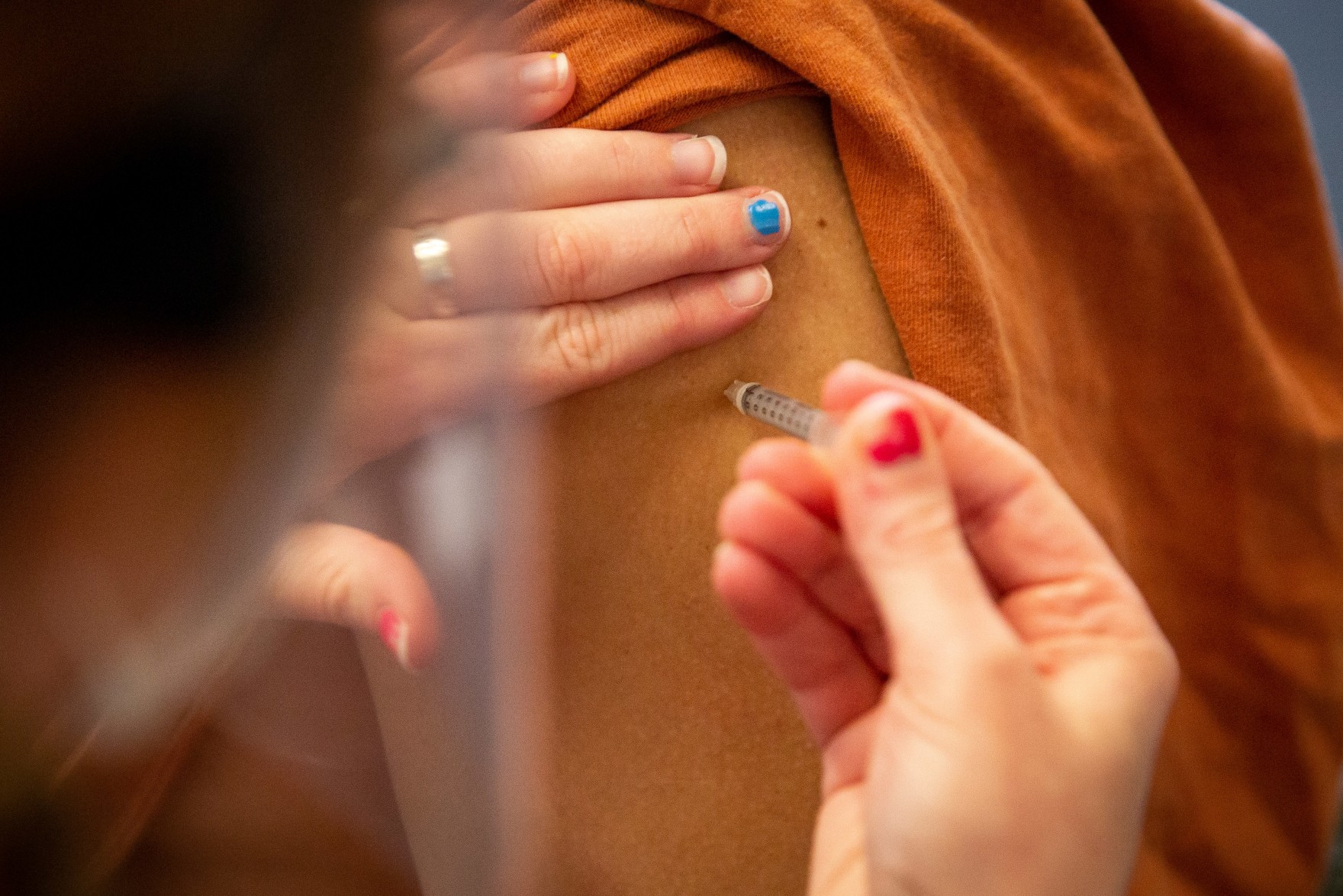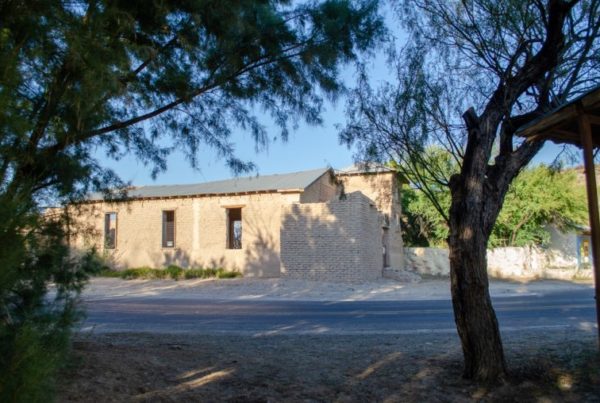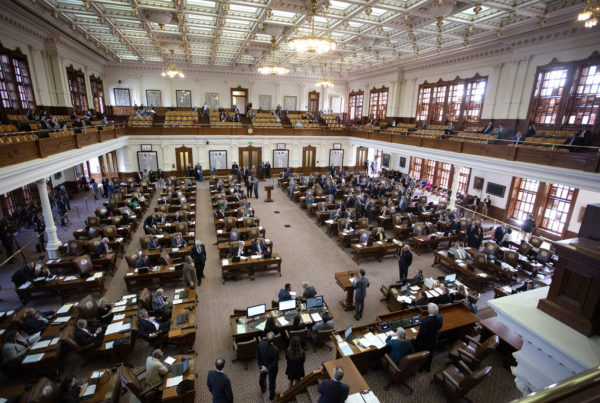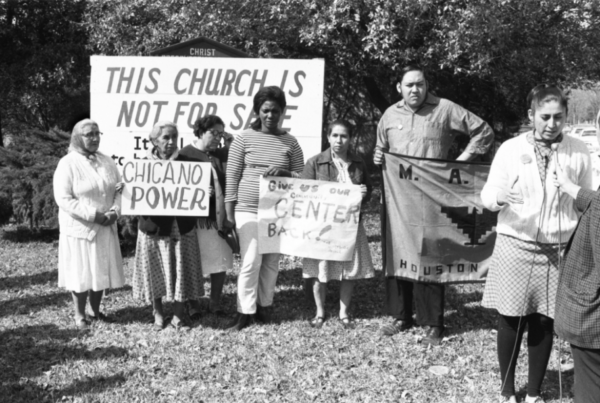As the availability of a vaccine for COVID-19 continues to expand, some Texans are likely to choose not to take it, or will at least think long and hard before they do, because of fears the vaccine could be dangerous, or that it won’t work. In the age of social media, ideas spread quickly. And vaccine mistrust was a problem long before a COVID-19 vaccine was approved. Now, public health experts are battling misinformation about the vaccines that are our likeliest way out of the pandemic.
Aubrey Matson, a 19-year-old college student, doesn’t consider herself “anti-vaccine.” But the pandemic hasn’t made her 100% in favor of them, either. She’s concerned that a fast-tracked COVID-19 vaccine could be dangerous.
“I do think that it needs to be well-researched before it is put into practice,” she told Texas Standard back in March.
SEE MORE: An Information Battle Looms If A COVID-19 Vaccine Is Approved
Matson is “vaccine hesitant.” She knows that some people opposed to vaccines might take their skepticism too far and promote hard-line views against them. But she also believes that the majority of people – many of them parents – who question vaccine safety have good intentions.
“I don’t think any of them come from any malicious intent; I think it all comes out of the desire to protect their kids,” she said.
And in Texas, protecting kids from being forced to vaccinate has been a thorny subject. Texas is one of 15 states that allow parents to avoid vaccination requirements before enrolling their kids in school.
While most Texans still get vaccinated, health experts like Dr. Seema Yasmin worry that even with a COVID-19 vaccine available, some will refuse to take it. That has been the case with other vaccines for diseases like measles.
“You end up with these deep pockets, these areas where many people don’t get vaccinated. … Even when overall vaccination rates look good, that doesn’t mean people are protected on a community level,” she said.
Yasmin is an epidemiologist, journalist and now a health communication researcher at Stanford University. She’s seen firsthand the good vaccines can do. In 2014, she reported on the Ebola epidemic in West Africa.
And she says a vaccine for COVID-19 is still the best bet for slowing the pandemic.
“It’s hard without a vaccine because you’re relying on containment measures such as physical distancing … and, of course, society doesn’t function that way. … A vaccine, or maybe multiple vaccines, is our likeliest way out of this crisis.”
But even now, as vaccines are finally being distributed, the public health community still faces a major hurdle: how to convince skeptics to get vaccinated.
A resistance movement in Texas was born five years ago after state lawmakers tried to limit existing exemptions for kids whose parents did not want them vaccinated. And people involved in that movement have been informing the state, through the media, that they want a choice when it comes to the COVID-19 vaccine.
Jackie Schlegel is executive director of Texans for Vaccine Choice. In May, she appeared on the holistic-health show, One Life Radio, to talk about her concerns that some of her group’s work to keep vaccine exemptions in Texas could be undone because of the pandemic.
“I’m not confident that we are tackling this appropriately. I want full assurance that any vaccine that comes to market has been thoroughly tested and it’s not going to be mandated,” she told host Bernadette Fiaschetti.
Schlegel also made clear what her group wants for Texans:
“Ultimately, everybody in this state needs a choice. And not just a choice to receive the vaccine or not, but reject the vaccine without consequence.”
Schlegel declined to be interviewed by Texas Standard. But she emailed that her group’s “mission of protecting and advancing informed consent, medical privacy, and vaccine choice for all Texans will not waver.”
Choice is one thing. But public health experts like Stanford’s Yasmin want people to make choices about a COVID-19 vaccine after receiving accurate information about it. So Yasmin and others have been laser-focused on how to combat the flood of misinformation that flows online.
“My frustration has been that disease doesn’t spread alone; it spreads in tandem with information contagion, and so we need to counter that as well,” Yasmin said.
Survey says some Texans are wary of the COVID vaccine
A recent survey by the Episcopal Health Foundation found that 35% of Texans say they are unlikely to get a vaccine. The number is down slightly from September. And less than half of Texans say they are very likely to get the shot.
Foundation president and CEO Elena Marks told Texas Standard that there are many reasons for vaccine hesitancy, including misinformation and bad experiences with the health care system in the past. Some unauthorized immigrants also fear contact with authorities would put them at risk for deportation.
Marks said accurate vaccine information has been plentiful, as has misinformation – both intentional and unintentional.
“When it’s intentional, it’s easier to correct, because if someone’s just got the facts wrong, you can tell them what the facts are,” Marks said. “But if the misinformation is out there because you’ve got a subsidiary reason – that you want to confuse people or discourage people, that’s going to be harder to combat.”
Texans over 65 and college graduates were the most likely to say they will get the vaccine, and there’s a wide gap based on political affiliation.
Of survey respondents who identified as Democrats, 52% said they are very likely to get the vaccine, while 30% of Republicans said they are very likely to get the vaccine.
Marks said the gap between Black Texans and others when it comes to willingness to take the vaccine has shrunk since September when the initial survey was taken.
“We don’t know exactly what to make of that, but we expect that it has something to do with the closer we’ve gotten to an actual vaccine being available, and reassurances from people who are trusted, we hope that has translated into higher numbers for every group, but particularly for Black respondents,” Marks said.












